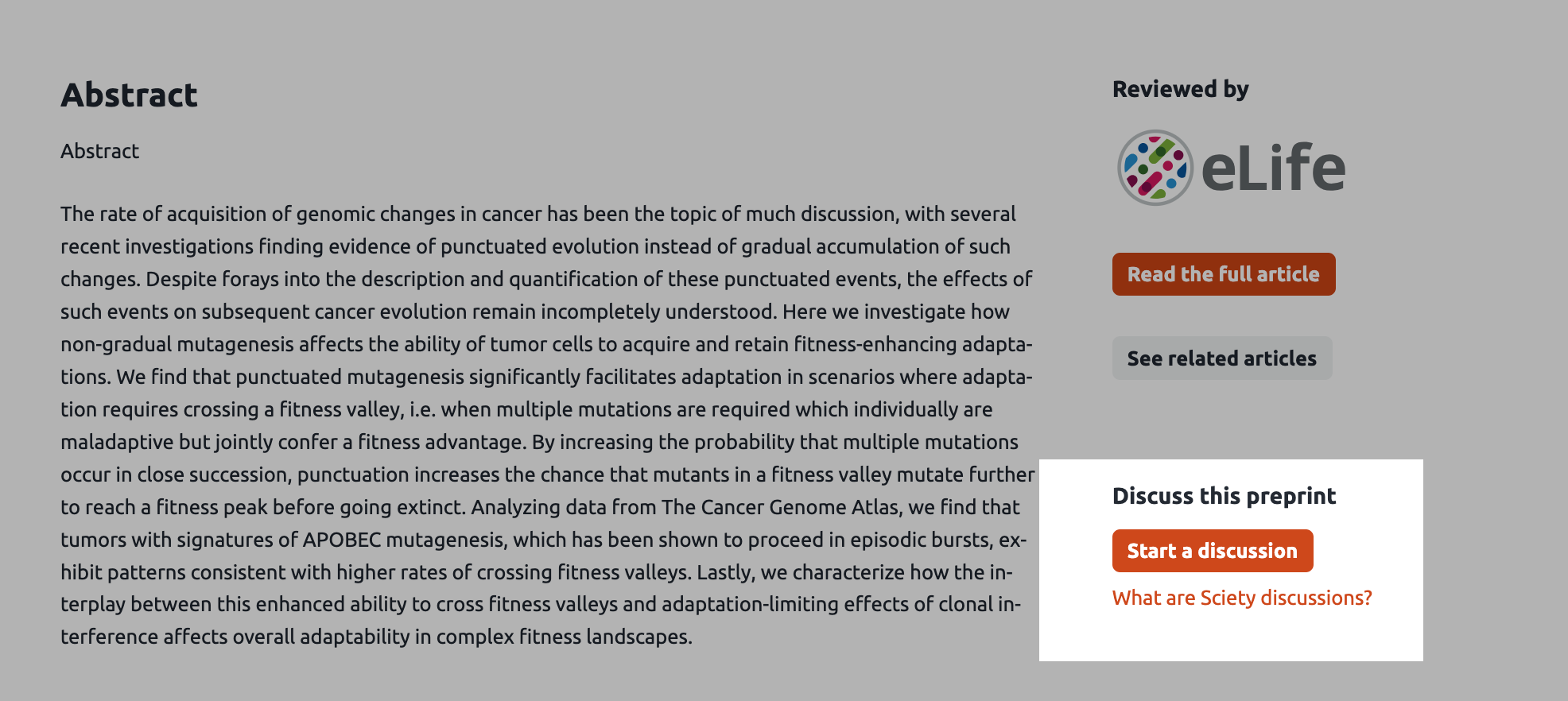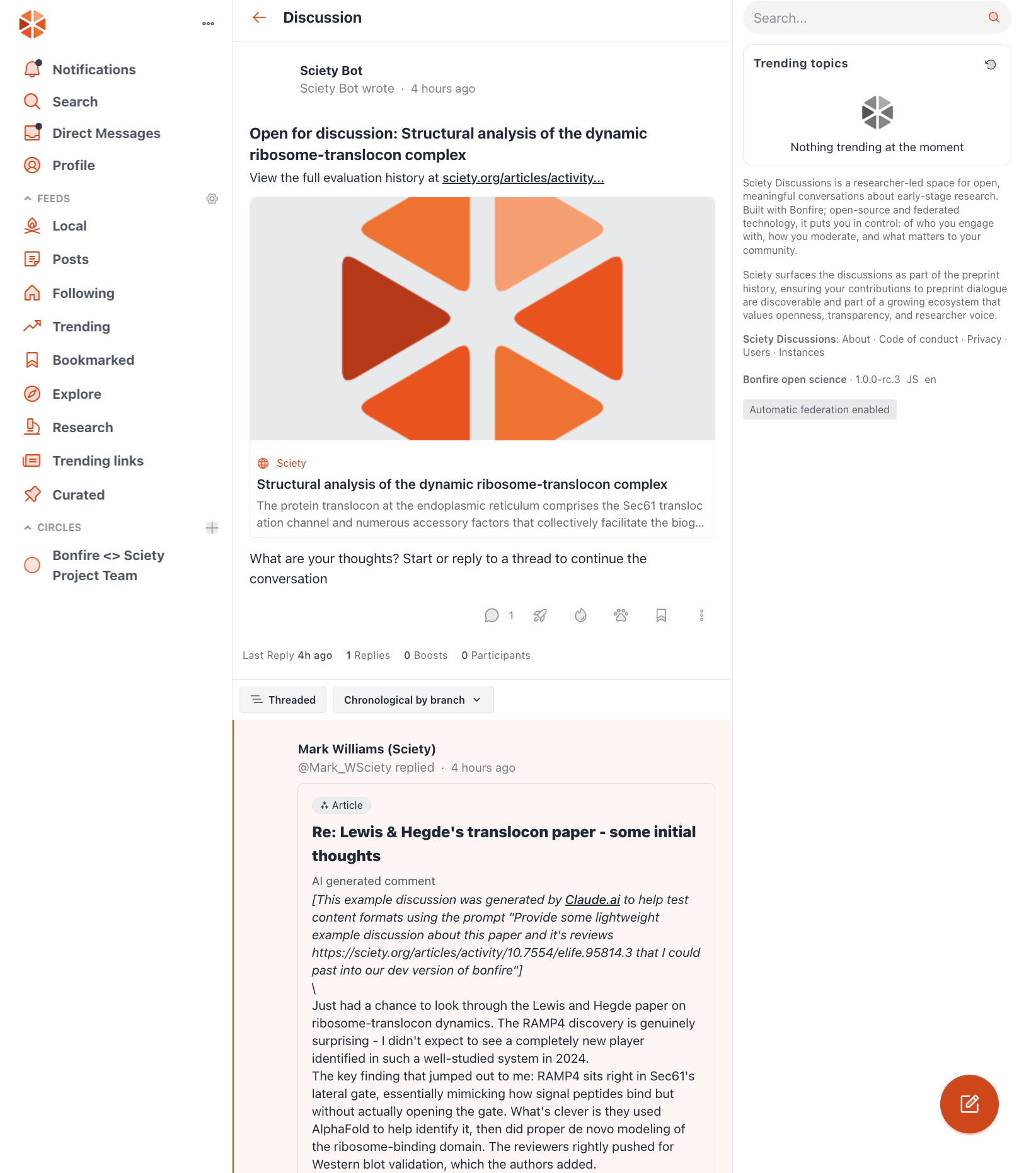The latest platform news from sciety.org, the home of community preprint evaluation.
🚀 What's new?
We're excited to share progress on our NLnet-funded project "An OpenScience flavour of Bonfire on NixOS for preprints" - work that's bringing us closer to enabling federated discussion spaces for preprint communities. Our current initiative focuses on early experiments to initiate discussions about preprints within an open, community governed social network, making it easier for preprint authors, reviewers and advocates to engage in meaningful scholarly discourse and own their own data.
Discussing preprints
It is now possible to initiate a discussion about any preprint. From any article page, you will now see a prompt to Discuss this Preprint. Currently, this link will take you to discussions.sciety.org, where you will be asked to Sign Up or Login. Sciety Discussions is a distinct application from the Sciety website and does not use your Sciety account. We aim to make this more seamless in the future.

From discussions.sciety.org, you can then create a post associated with the article. Currently this is a manual process to demonstrate the concept, but we expect to be able to transfer metadata such as Article title and Abstract through to the discussion site

Experiments in following and federation
With our NixOS deployment (dev-discussions.sciety.org), we wanted to test out federation between open-science flavour instances and it's working beautifully. What this means is that users can follow each other across different Bonfire instances, for example in different review communities or institutions. They can exchange direct messages, and even connect with Mastodon, Wordpress, Bluesky (with bridging technology) or any other federated technology users.
🔭 What's next?
- We'll be implementing a counter/notification in Sciety.org to show when a discussion is already taking place about a paper or review, helping aggregate preprint discussions in Sciety.
- We'll be looking at how we might transfer metadata such as Title and Abstract for an article or review group for a review when you start a discussion via Sciety and how we might automatically create a post
- We'll be sharing some early thoughts, designs and prototypes with the Ambassadors community at eLife
- We'll be testing our DOI archiving for posts and discussion threads
- We're testing out our NixOS-based deployment approach across multiple cloud providers. We're currently running on Hetzner at minimal cost and will also document AWS deployment and Digital Ocean deployment, demonstrating that research communities can deploy Bonfire on their infrastructure of choice without getting locked into a single vendor. This flexibility is essential for universities and research groups who need control over their hosting decisions.
Join in our testing
In the next couple of weeks, we'll be running feedback sessions on discussions.sciety.org, so look out for invites. In the meantime, we're building this infrastructure to serve the preprint community's needs for open, decentralised discussion spaces. If you're interested in federated preprint discussion, deploying Bonfire for your community, or contributing to this work, we'd love to hear from you.
Book a 1:1 call to learn more about our progress and help shape the future of federated scholarly communication.
🔗 Stay connected
This work represents an important step toward more open, community-controlled scholarly infrastructure.
You can follow our technical progress via documentation on Sciety's github repository and continue to connect with us on Mastodon and LinkedIn.
This work is made possible through funding from NLnet, supporting our mission to create more open and accessible scholarly communication infrastructure.
